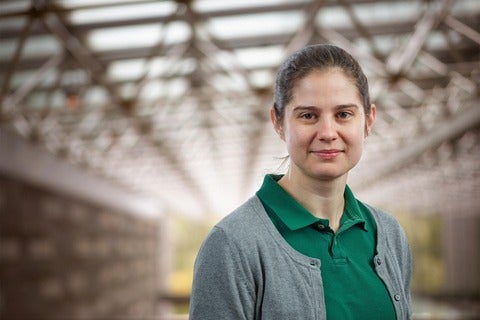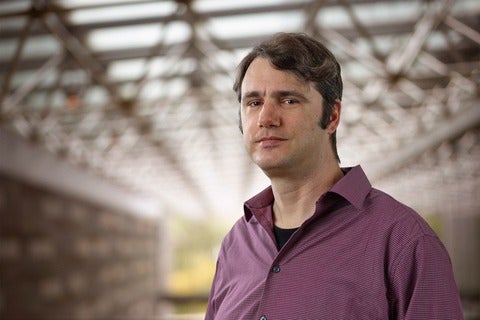Asymptotic performance of port-based teleportation
Felix Leditzky, University of Colorado, Boulder
Port-based teleportation (PBT) is a variant of the well-known task of quantum teleportation in which Alice and Bob share multiple entangled states called "ports". While in the standard teleportation protocol using a single entangled state the receiver Bob has to apply a non-trivial correction unitary, in PBT he merely has to pick up the right quantum system at a port specified by the classical message he received from Alice.

 I give an overview of trapped ion quantum information experiments and discuss prospects for implementing multi-valued quantum logic using trapped ions.
I give an overview of trapped ion quantum information experiments and discuss prospects for implementing multi-valued quantum logic using trapped ions.
 Jon Yard, IQC
Jon Yard, IQC Surface acoustic waves (SAWs) are acoustic phonons that travel along the surface of a material and have been used for a wide variety of purposes, from RF filters to acoustic cavities to biosensors.
Surface acoustic waves (SAWs) are acoustic phonons that travel along the surface of a material and have been used for a wide variety of purposes, from RF filters to acoustic cavities to biosensors.